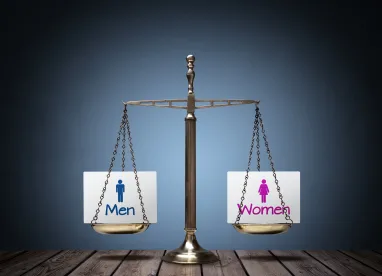In Theidon v. Harvard University, No. 18-1279 (January 31, 2020), the U.S. Court of Appeals for the First Circuit affirmed a lower court’s decision granting summary judgment for Harvard University as to a female professor’s gender discrimination and retaliation claims. Analyzing her claims under federal and state discrimination laws, the court held that the professor neither established that Harvard’s articulated reasons for denying her tenure were pretextual nor showed that the denial of her tenure was in retaliation for protected activity.
Background
Kimberly Theidon is an anthropologist, Latin American studies scholar, and former Harvard University professor. At Harvard, Theidon raised concerns to her supervisors about a lack of gender diversity in the Anthropology Department. She also publicly advocated for sexual assault survivors and for the need to address gender disparities and sexual misconduct on campus. Theidon was denied tenure in 2013. She claimed that the denial was because of gender discrimination and her protected activity. Harvard countered that her tenure denial had been based on a review of her scholarly record and on findings that she had not adequately contributed to or been recognized as a thought leader in the field of anthropology, and on a determination that she was unlikely to advance the field. Theidon filed suit against Harvard in March 2015, claiming that the denial of her tenure violated her rights under Massachusetts Gen. Laws ch. 151B, Title VII of the Civil Rights Act of 1964, and Title IX of the Education Amendments of 1972.
The First Circuit’s Analysis
Applying the McDonnell Douglas framework to assess the adverse tenure decision, the court held that Theidon had met her initial burden of showing that (1) she was a member of a protected class; (2) “‘she was a candidate for tenure and was qualified under [Harvard’s] standards, practices, or customs’”; (3) she was rejected despite her qualifications; and (4) tenure positions in Harvard’s Anthropology Department were open at the time she was denied tenure.
Because Harvard University President Drew Gilpin Faust articulated legitimate, nondiscriminatory reasons for denying Theidon tenure (e.g., her failure to make major contributions to the field of anthropology and insufficient publication productivity), the burden shifted back to Theidon. The First Circuit applied both the “pretext only” and the “pretext plus” standards in accordance with applicable state and federal precedent. Starting with the “pretext-plus” standard, Theidon needed to offer “some minimally sufficient evidence, direct or indirect, both of pretext and of [Harvard’s] discriminatory animus.” To satisfy her burden she needed to do more than question Harvard’s business judgment, but she could rely on implausibilities or inconsistencies in Harvard’s articulated legitimate reasons for its decision, such that a reasonable factfinder could find the employer acted out of discriminatory animus.
In attempting to satisfy this burden, Theidon pointed to four “perceived irregularities” about her tenure review process. Three were procedural errors, changes, or oversights, which the court found did not lead to the conclusion that Harvard’s stated reasons for denying her tenure were pretextual. Further, the court noted that any procedural irregularity had not affected her tenure review. The fourth perceived irregularity was that her previous complaints about sex discrimination had been improperly inserted into her tenure review process. However, the court noted that there was no evidence that the voting members of the tenure review committee had been aware of the complaints prior to recommending the denial of tenure.
Theidon also asserted that evidence of the Anthropology Department’s alleged discriminatory work environment could permit a reasonable jury to infer pretext and discriminatory animus. To support this position, Theidon noted that her advisor—the only senior, tenured female professor in the department at the time—had advised her to “downplay her intelligence” and be a “‘dutiful daughter’” who “‘doesn’t complain’” about being asked to do more than her male counterparts. Referring to these allegations as “The Hail Mary Evidence,” the court held that although the comments had been “ill-advised mentoring advice,” they were insufficient to create proof of pretext. The court also noted that the advisor in question was a “zealous advocate for Theidon’s tenure.” The court went on to state that even if this evidence, combined with procedural irregularities, raised doubts about Harvard’s decision to deny tenure, “‘merely casting doubt on the employer’s articulated reason’” did not meet Theidon’s “burden of demonstrating discriminatory intent” under Title VII.
Turning to Massachusetts’s “pretext only” standard under Mass. Gen. Laws ch. 151B, the court stated that for the same reasons explained above, Theidon’s proffered evidence did not satisfy her burden. She failed to create the inference that Harvard’s reasons for denying her tenure were pretextual.
Retaliation Claims Based on Protected Activity
Turning to her claim that the tenure denial had been in retaliation for her protected activity, including her advocating to improve Harvard’s response to sexual assaults on campus, the court rejected the claims, noting that she had not established a “causal link between her protected activity and the denial of tenure under either a ‘but for’ or a ‘substantial or motivating factor’ standard of causation.”
The court found no evidence from which a jury could reasonably conclude that the voting members of the tenure review committee or Faust were aware of Theidon’s allegedly protected activities during their deliberations.
Theidon then attempted a “cat’s paw” theory of liability, arguing that an employee’s retaliatory animus can be imputed to a decisionmaker’s ultimate decision. She claimed that a professor on her tenure review committee—who had provided increasingly negative feedback that had been contemporaneous with her alleged protected activity (an allegation which arguably showed that he had been motivated by discriminatory animus)—had improperly influenced Faust. In rejecting this theory, the court noted that Theidon had neither provided evidence that the professor had been aware of her protected activity nor shown that he shared his views with Faust—or that Faust had given the professor’s opinions special consideration. The court stated that it could not plausibly be inferred that the final decision had been affected by the retaliatory animus of one professor when Faust had been cautioned about Theidon’s candidacy by “many voices in a chorus.”
Rule 59(e) Motion for Altered or Amended Judgment
Theidon attempted a Rule 59(e) motion to alter or amend the judgment because of new sexual misconduct allegations against her former mentor, suggesting that his “proclivity for sexual harassment prior to and around the time of her tenure review … may have motivated him to retaliate as backlash against Theidon’s support of work bringing light to sexual misconduct on Harvard’s campus.” The court did not agree, since this professor played almost no role in her tenure review process and Theidon could not show he influenced the committee’s recommendation or Faust’s determination.
Key Takeaways
This decision is an important one for employers, particularly given the court’s statement that Theidon had failed to satisfy even Massachusetts’s “pretext only” standard, which required her to show only that Harvard’s articulated reasons for denying her tenure had been pretextual.
While Theidon put forward several examples of procedural irregularities that had occurred during her tenure review process, she failed to connect them directly to the decision to deny her tenure. The court made clear that such a showing is insufficient in both “pretext only” and “pretext plus” jurisdictions. Similarly, in her retaliation claims, Theidon failed to connect the instances of protected activity to her tenure denial.





 />i
/>i

